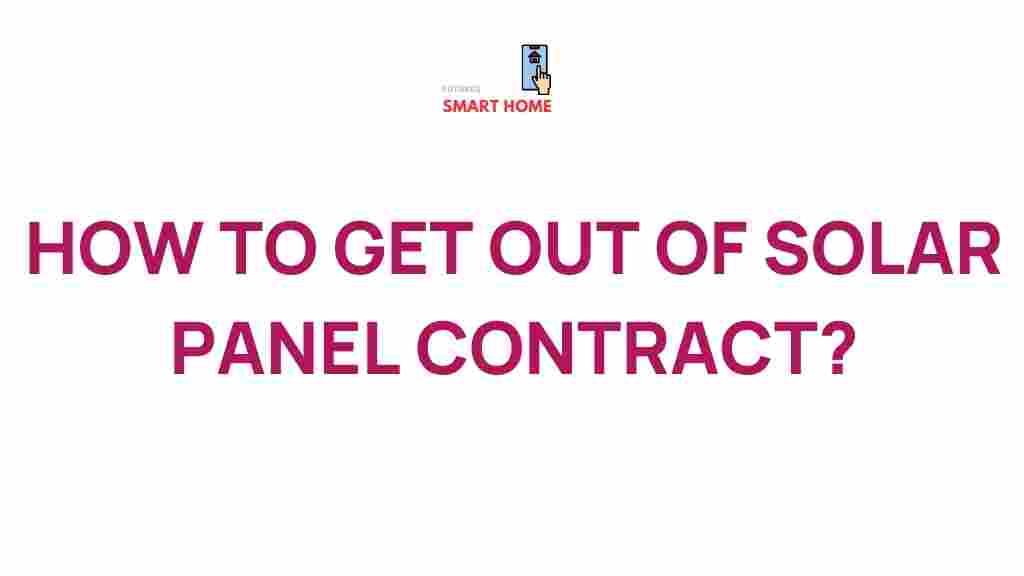Unraveling the Secrets of Solar Panel Contracts
As the world moves towards sustainable energy solutions, solar panels have become a popular choice for homeowners and businesses alike. However, entering into a solar panel contract can be daunting. This article aims to demystify the legal obligations involved in solar panel agreements, offering tips to navigate potential pitfalls, and providing guidance on termination and renegotiation.
Understanding Solar Panel Contracts
Solar panel contracts are legal agreements between a solar energy provider and the customer. These contracts outline the terms of service, installation, maintenance, and payment obligations. Understanding the details of your solar panel contract is crucial for ensuring you make informed decisions regarding your energy needs.
Key Components of a Solar Panel Contract
When reviewing a solar panel contract, pay close attention to the following components:
- Scope of Work: This section defines what services will be provided, including system design, installation, and maintenance.
- Payment Terms: Understand the total cost, payment schedule, and any financing options available.
- Performance Guarantees: Look for clauses that guarantee the performance of the solar panels, ensuring they will produce a specified amount of energy.
- Legal Obligations: Be aware of any legal requirements that must be met, including permits and inspections.
- Liability and Insurance: Clarify who is responsible for damages and whether the installer has insurance coverage.
Tips for Reviewing Your Solar Panel Contract
Before signing a solar panel contract, consider the following tips:
- Read Everything Carefully: Don’t rush through the contract. Take your time to understand every clause.
- Ask Questions: If something isn’t clear, don’t hesitate to ask the provider for clarification.
- Compare Offers: Get multiple quotes from different providers to ensure you’re getting the best deal.
- Check References: Research the solar provider’s reputation and read customer reviews.
- Consult a Lawyer: If you’re unsure about the legal language, consider hiring a lawyer who specializes in energy contracts.
Common Pitfalls in Solar Panel Contracts
Be aware of these common pitfalls when entering into a solar panel contract:
- Hidden Fees: Some contracts include hidden fees that can significantly increase your costs. Look for any additional charges that may apply.
- Performance Clauses: Ensure the contract includes clear performance clauses. If the system underperforms, you should have recourse.
- Termination Clauses: Understand the conditions under which you can terminate the contract. Some contracts may impose heavy penalties for early termination.
- Limited Warranty: Check the warranty on the panels and the work performed, as limited warranties may leave you vulnerable.
Understanding Termination and Renegotiation
Life circumstances change, and you may find yourself needing to terminate or renegotiate your solar panel contract. Here’s what you should know:
Termination of a Solar Panel Contract
Termination clauses are crucial. They specify how and when either party can terminate the contract. Here are some common reasons for termination:
- Non-Performance: If the solar provider fails to meet their obligations.
- Change in Ownership: If you sell your home, you may want to terminate the contract.
- Financial Hardship: If you can no longer afford the payments, you might seek termination.
Renegotiation Strategies
If you find yourself needing to renegotiate your solar panel contract, consider the following strategies:
- Document Your Reasons: Clearly articulate why you want to renegotiate. Having a valid reason strengthens your position.
- Be Open to Compromise: Understand that both parties may need to make concessions.
- Consult a Professional: If negotiations become complex, consider seeking legal advice to assist in the process.
Legal Obligations in Solar Panel Contracts
Understanding your legal obligations is essential in any solar panel contract. Here are some key obligations to keep in mind:
- Compliance with Local Laws: Ensure that the installation complies with local zoning laws and regulations.
- Permits: The provider typically handles permits, but confirm that this is included in the contract.
- Insurance Coverage: Verify that the installer has adequate insurance to cover potential damages during installation.
Troubleshooting Common Issues
Even with a well-crafted solar panel contract, issues may arise. Here are some common problems and their solutions:
Problem: Installation Delays
If your installation is delayed, first review the contract for timelines. If the provider is at fault, you may have grounds for penalties or termination.
Problem: System Underperformance
If your solar panels are not performing as promised, refer to the performance guarantee in your contract. Document the underperformance and communicate with the provider.
Problem: Disputes Over Costs
Keep all communication in writing and refer to the payment terms in your contract. If disputes arise, mediation may be a viable option.
Conclusion
Navigating a solar panel contract requires careful consideration and understanding of legal obligations, potential pitfalls, and strategies for termination and renegotiation. By following the tips outlined in this article, you can make informed decisions and ensure a smooth transition to renewable energy. For more detailed information on renewable energy agreements, consider visiting this external resource or check out our guide on understanding energy contracts.
Investing in solar energy is a significant decision, and understanding your solar panel contract is essential for protecting your investment and enjoying the benefits of clean energy.
This article is in the category Guides & Tutorials and created by FutureSmarthome Team
